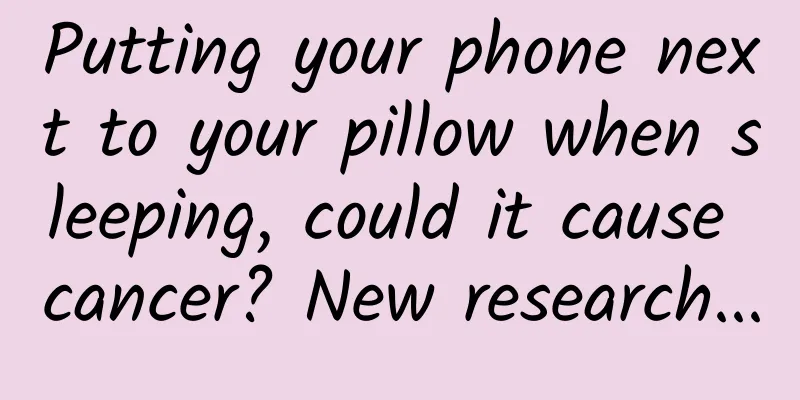Putting your phone next to your pillow when sleeping, could it cause cancer? New research...

|
When making a call, people are used to holding their phones close to their heads. However, mobile phones emit radio waves, which is a type of non-ionizing radiation. This has largely led to the idea that "mobile phones may induce brain cancer" and has caused public concern for a long time. But our daily lives are inseparable from mobile phones, and more generally the wireless technology behind them. Therefore, it is very important to scientifically explain the safety of exposure to radio waves from electronic devices. For many years, the scientific community has generally agreed that mobile phone radiation does not cause brain cancer or broader health problems. However, there are still sporadic studies pointing out the potential health threats of mobile phone radiation. A recent study published in Environment International confirms this view. In Australia, mobile phone use has increased dramatically since the early 1980s. Image credit: The Conversation Does radiation cause cancer? In 2011, the International Agency for Research on Cancer (IARC) under the World Health Organization defined "radio frequency electromagnetic waves", including mobile phone radiation, as Class 2B carcinogens, which means "may be carcinogenic to humans, but the evidence is limited." Other common substances in this category include gasoline, asphalt, and aspartame. People often take the wording literally and misunderstand the meaning of this classification, which exacerbates concerns about radiation. More importantly, IARC's main basis for classifying radio waves as a possible carcinogen is limited observational research evidence . Observational studies usually collect different types of patient data in hospitals or clinics, reflecting the general public's medication or disease situation , thereby revealing the incidence and causes of diseases in the population. It is the best way to study the long-term health effects of a substance on humans. However, this type of study cannot randomly assign drugs to different groups like randomized clinical trials, so it will inevitably bring interference factors and selection bias to the research results, and the results obtained may be different from the actual situation. For example, in earlier observational studies referenced by IARC, brain cancer patients often reported using cell phones more often than they actually did. However, this new observational study, which combined a larger data set and more recent and comprehensive studies than the 2011 IARC review, gives us greater confidence that cell phone radiation is not associated with an increased risk of cancer. New conclusions? In fact, the study is part of a series of comprehensive reviews commissioned by the World Health Organization to take a deeper look at the potential health effects of mobile phone radiation. At present, this meta-analysis is the most comprehensive in related research, covering more than 5,000 studies, 63 of which were published between 1994 and 2022. It provides the strongest evidence to date that electromagnetic radiation generated by wireless technology is not harmful to human health. The study did not find any association between cell phone use, including duration (ten years or more) and frequency (number of calls, length of calls), and other cancers, such as brain cancer and neck cancer. These findings are consistent with some previous studies. In fact, the use of wireless technology (such as cell phones) has increased significantly in the past few decades, but at the same time, the incidence of brain cancer has not increased. Brain cancer rates in Australia remain relatively stable. Image source: The Conversation Overall, the results are reassuring. This means that, despite the increase in radio usage, national and international safety regulations are effectively protecting us from radiation hazards. The intensity of mobile phone radiation is actually very low, far below the safety threshold, and there is no evidence that these radiations are harmful to health. However, it is important to continue research because technology is changing rapidly, and as the technology develops, the frequencies of radio waves and how they are used will continue to change, so scientists need to ensure that the electromagnetic radiation generated by new technologies remains within safe ranges. Studies have proven that cell phone radiation does not cause cancer, such as brain cancer. Now, the challenge is to ensure that these studies dispel myths and misinformation about cell phones causing cancer. Planning and production Source: Global Science Editor: Yang Yaping Proofread by Xu Lai and Lin Lin The cover image of this article comes from the copyright library. Reprinting and using it may cause copyright disputes |
Recommend
What items should be checked at 36 weeks of pregnancy
In the later stages of pregnancy, pregnant women ...
Are there many breastfeeding problems? What experts say
Children need breastfeeding from birth. However, ...
How often should you eat hot pot to be healthier? The key is to pay attention to these 5 points!
As the weather gets colder, many people choose to...
5 factors that contribute to the worsening of chronic kidney disease! The more you have, the more dangerous it is
Chronic kidney disease (CKD) is a highly insidiou...
What is edema during menstruation?
In addition to nausea during menstruation, some w...
Causes of dark and sticky menstruation
Menstruation is very important to women. Differen...
What to do if a pregnant woman has stomachache in the middle of the night
Now, with the rapid development of economy, peopl...
Does your belly swell during ovulation?
A woman's ovulation period and menstrual peri...
What does cervical columnar epithelium ectopia mean?
Many people do not understand what cervical colum...
Common Sense: 2022 Kids' Media Use Report
In 2022, Common Sense examines how children use m...
[Medical Q&A] Which drugs will affect men's pregnancy preparation?
Planner: Chinese Medical Association Reviewer: Ga...
Can acupuncture treat gynecological diseases?
Gynecological diseases are a common condition for...
Does red blood streak mean sensitive skin?
Many people think that if red blood streaks appea...









